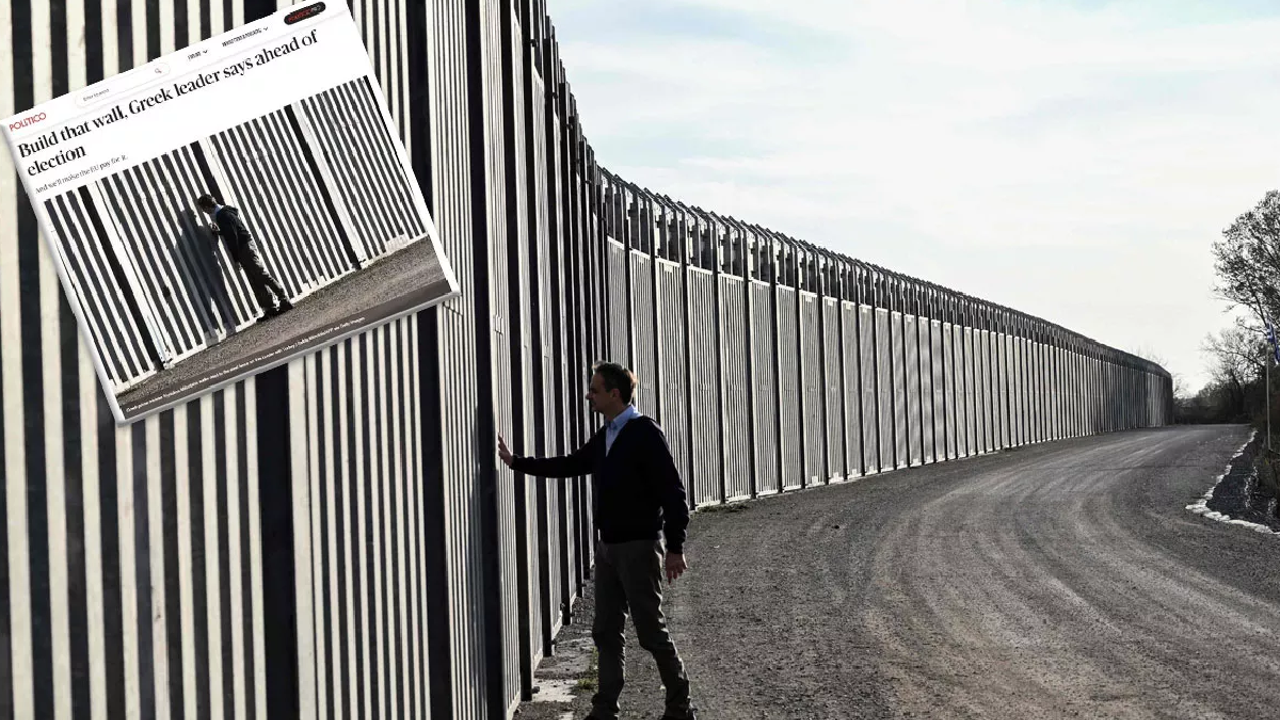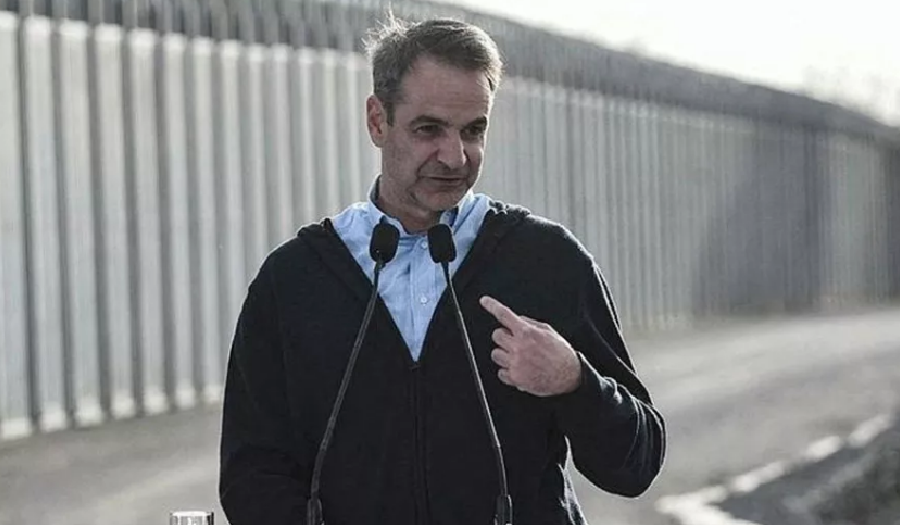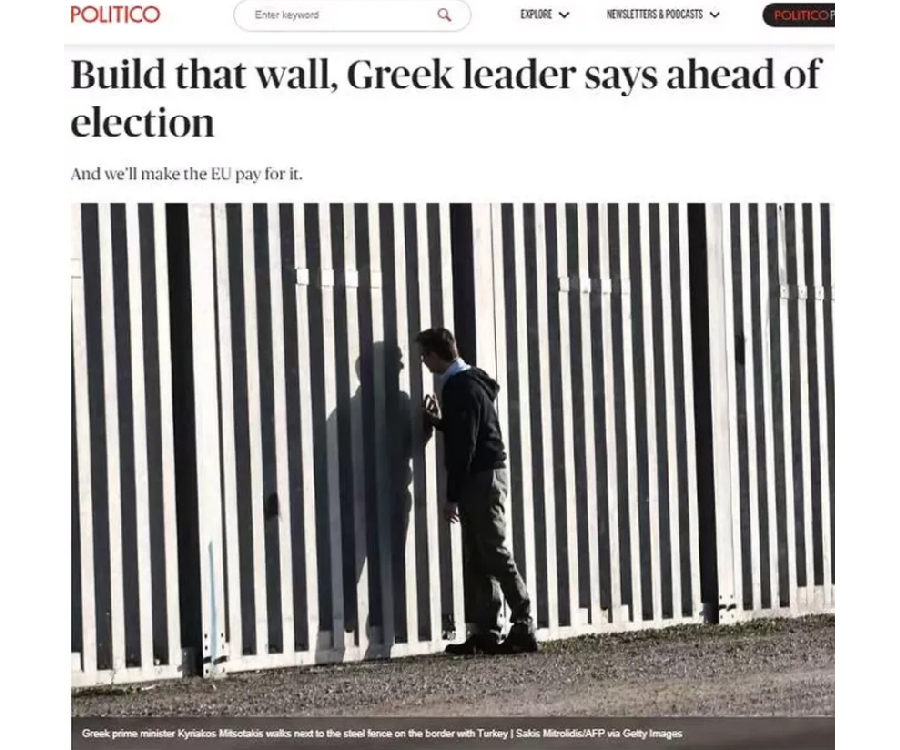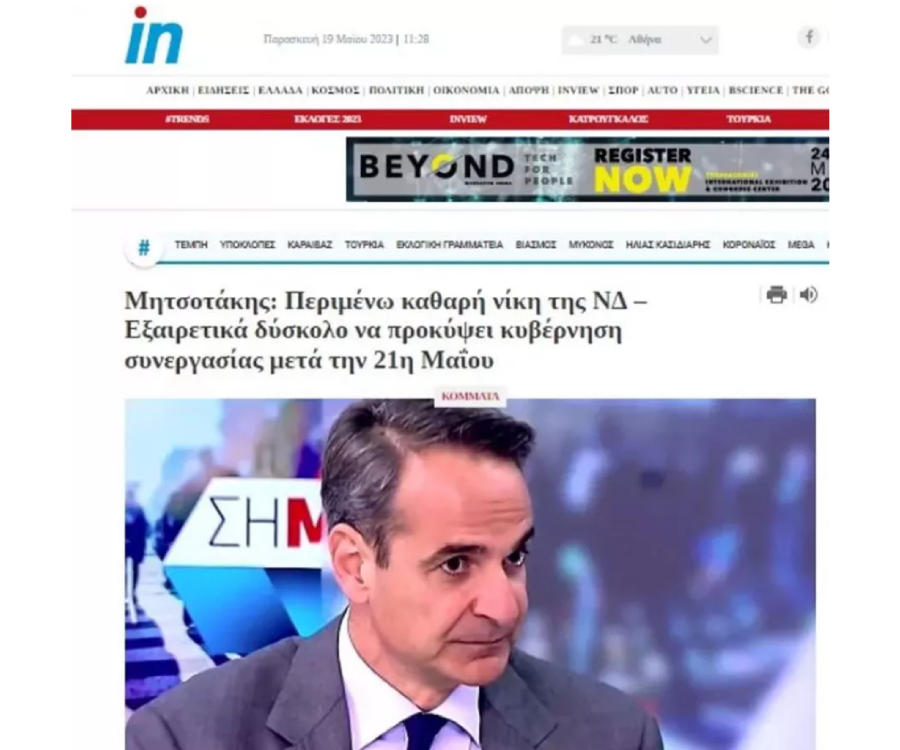Greek PM Mitsotakis pledges to build wall on Turkish border
Greek Prime Minister Mitsotakis' election pledge to build a wall on the border with Türkiye was met with reaction in the West. European media likened Mitsotakis to former US President Trump in his attempt to blame the cost of the wall on the West.

The Mitsotakis government, which has built its foreign policy on anti-Türkiye sentiments, is frequently on the agenda with its inhumane policies on refugees. Finally, the European media reacted to Mitsotakis' election promise to "build a wall on the border with Turkey" to prevent the passage of refugees.
'WHO WILL PAY FOR THE FENCE?'
Greek Prime Minister Kyriakos Mitsotakis' election promise to build a wall on the border with Türkiye and his request for money from the EU to pay for it caused reactions. While the Greek Prime Minister's rival Tsipras emphasized that the migrant problem will not be solved with a fence, Western media compared Mitsotakis to former US President Donald Trump and asked 'who will pay for the fence?'
On Sunday, May 21, as Greece prepares to go to the polls, Prime Minister Kyriakos Mitsotakis, who is running for re-election, says he expects a 'clear victory'. Polls in the country put him 6 points ahead of his rival Alexis Tsipras, but it is still a big question mark whether Mitsotakis' conservative New Democracy party can win an outright majority in parliament.
ASKS EU FOR FUNDING FOR THE WALL
The US-based Politico magazine, which examined the Greek elections, drew attention to Mitsotakis' election promise to build a wall along the entire land border with Türkiye and said, "Greek Prime Minister Kyriakos Mitsotakis promised to extend the fence to almost the entire 192-kilometer border of Greece with Türkiye by 2026. The Greek Prime Minister also asked the EU to provide financing, arguing that his country alone should not bear the cost of protecting the European Union border."

TRUMP ANALOGY
The commitment to build a wall and make someone else pay for it sounds familiar, the magazine said, likening Mitsotakis to former US President Donald Trump, who promised to build a wall on the Mexican border. The comparison to the Greek prime minister is actually not new. Last month, in an interview with Bild, one of Germany's largest newspapers, Mitsotakis faced the same comparison and said, "I don't have thick blond hair, so I don't think the comparison is very appropriate."

'FENCES DON'T SAVE ANYONE'
While Mitsotakis has repeatedly emphasized that the wall on the Turkish border is necessary to prevent illegal migrants from entering Greece, it seems that not everyone agrees with him. Alexis Tsipras, the leader of Mitsotakis' rival Syriza Party, recently said on Skai TV that a border fence would not save anyone: "If the extremely complex migration and refugee problem could be solved with a fence, Europe would already be dealing with it. Trump was saying the same thing in Mexico, but fences don't save anyone."

'PUSH BACK' POLICY DRAWS BACKLASH
Politico magazine pointed out that Greece's 'push-back policy' has been criticized by both human rights organizations and the European Parliament and asked the question: "Will Greek voters decide on Sunday whether to harden the country's line on migration by extending the border wall with Türkiye or to elect the Syriza party, which has adopted a softer stance on the issue?"
212 KILOMETERS OF LAND BORDER
There is a 212 kilometer land border between Türkiye and Greece. In 2012, Greece decided to build a 3 meter high and 12.5 km long metal wall on the border to prevent refugees from crossing. The wall project continued in 2020 with the construction of a new 27 km long steel wall against migrants from Afghanistan. Today, there are active border teams on the Greek side of the wall, which stretches 37.5 kilometers.
A TOUGH CHOICE FOR MITSOTAKIS
After a deadly train crash, Greece is heading to the polls with an angry group of young voters, 440,000 of whom will vote for the first time, and the elections are expected to go to a second round. According to experts, a single-party government or a coalition government is unlikely in the second round of elections in Greece. There is even talk of a third round of elections in Athens in September.







